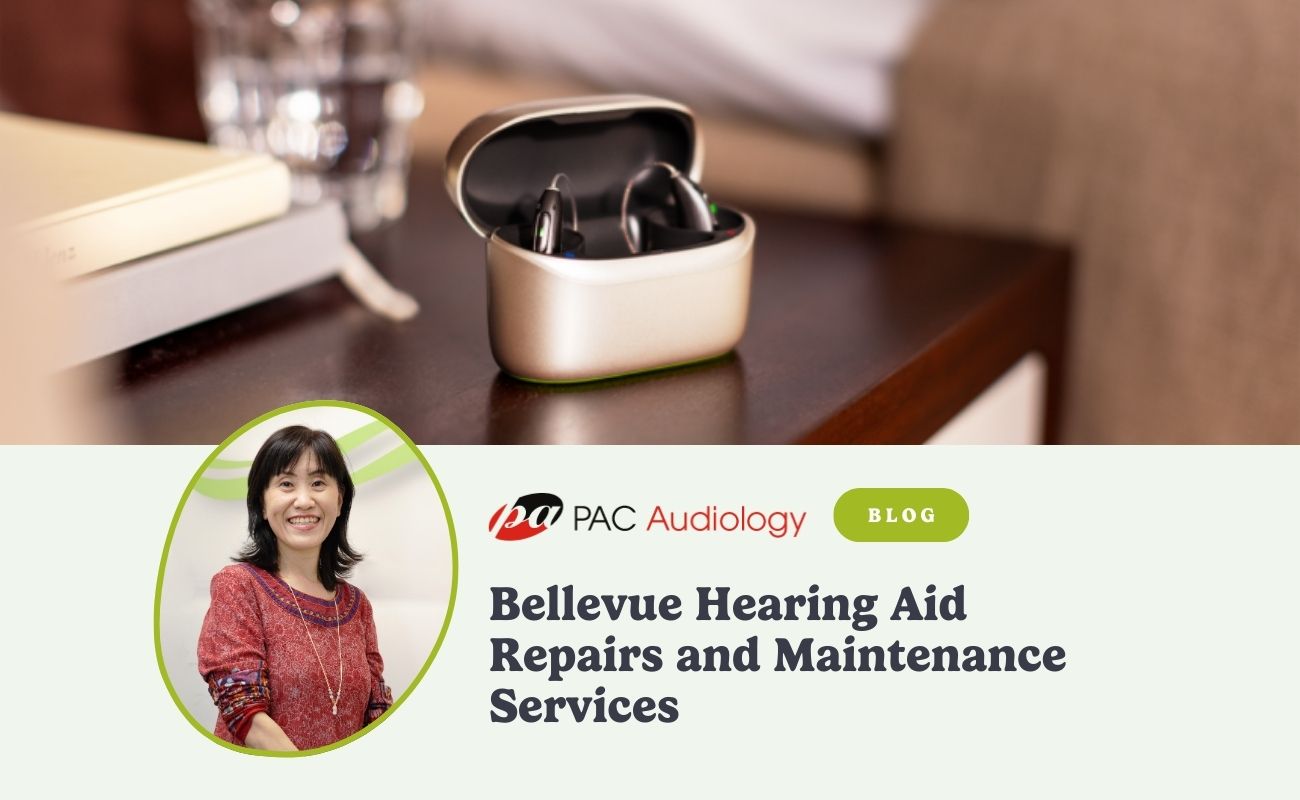How Audiologists Fit Hearing Aids for Optimal Performance

Getting hearing aids is just the first step. The real difference in your hearing experience comes from how they're fitted and programmed. When you work with an audiologist, you're not simply purchasing a device—you're receiving personalized care that ensures your hearing aids deliver the results you need for your unique hearing loss.
Understanding Your Hearing Loss Profile
Before any hearing aid fitting begins, we conduct a comprehensive hearing evaluation. This isn't a quick screening—it's a detailed assessment that reveals the specific pattern of your hearing loss.
Your hearing loss is unique to you. Some people struggle more with high-pitched sounds like women's and children's voices, while others have difficulty with lower frequencies. The type and degree of hearing loss across different pitches determines which hearing aids will work best and how they need to be programmed.
During the evaluation, we measure your hearing thresholds at multiple frequencies. We also assess your ability to understand speech in quiet and noisy environments. This gives us a complete picture of your hearing abilities and challenges in real-world situations.
The results guide every decision in the fitting process. Two people with the same hearing test numbers on paper can have very different listening needs based on their lifestyle, work environment, and daily activities.
Selecting the Right Hearing Aid Style and Technology
Based on your evaluation results, we help you choose between the different styles of hearing aids based on your preferences and unique hearing loss.
Behind-The-Ear (BTE) and Receiver-In-Canal (RIC) models work for all degrees of hearing loss and sit comfortably behind the ear. These come in various colors, styles, and technology levels.
Custom hearing aids are made specifically to fit your ear canal shape. They're available in many skin tones and sit discreetly in your ear. The smallest models are virtually invisible, sitting completely within your ear canal.
We work with multiple manufacturers including Phonak, ReSound, Oticon, Signia, Widex, Starkey, Unitron, and Sonic Innovations. This allows us to match you with the technology that addresses your specific hearing needs rather than limiting you to one brand's approach.
Modern hearing aids are rechargeable, technologically advanced, and come in stylish designs. Many connect to your smartphone via Bluetooth, allowing you to stream phone calls, music, and television audio directly to your hearing aids. We help you set up these features and adjust the streaming volume to comfortable levels. Together, we'll determine the best option based on your type of hearing loss, lifestyle, and budget.
The Science of Programming: Real Ear Measurement
Here's where professional fitting makes the biggest difference. To properly set up hearing aids to maximize your hearing ability, they need to be programmed using Real Ear Measurement (REM).
REM involves placing a thin probe microphone in your ear canal alongside the hearing aid. This measures the actual sound reaching your eardrum, accounting for your unique ear canal size and shape. Your ear canal affects how sound resonates, and these individual differences can significantly impact hearing aid performance.
Many hearing aids come with manufacturer first-fit settings. These estimate how much amplification you need based on your hearing test and provide a prescribed setting. While this is a starting point, audiology best practices indicate that for the most benefit possible, hearing aids need to be programmed using Real Ear Measurement.
Some traditional hearing aid models include a similar feature built-in, but the majority do not. REM can only be performed in person—it requires precise equipment and professional expertise. This is one reason why working with an audiologist produces better outcomes than purchasing devices online or through retail stores.
The measurement process is quick and painless. We program your hearing aids, place them in your ears with the probe microphone, and play sounds while measuring the output. We then adjust the programming until the amplification matches the prescription for your specific hearing loss. This ensures you're getting the right amount of amplification at each frequency.
First-Time Hearing Aid User Counseling
If you're new to hearing aids, the initial fitting appointment involves more than just programming. First-time hearing aid buyers need counseling and education on the importance of wearing hearing aids consistently.
Many new users look for immediate comfort and less noise. This is natural—your brain hasn't heard certain sounds in years. The sound of dishes, rustling paper, or your own footsteps might seem loud at first. We help you understand what to expect during the adjustment period.
Proper placement matters. Some people struggle to position hearing aids correctly in their ears, which affects both comfort and performance. We make sure you're confident with insertion and removal before you leave the office.
The first few weeks are critical. We schedule follow-up appointments to address your unique issues and make adjustments as your brain adapts to hearing sounds again. Each patient has different challenges, and receiving personalized help is key to improving your hearing health.
Adjustments and Fine-Tuning
Hearing aid fitting isn't a one-time event. Your first fitting appointment establishes the baseline programming, but adjustments follow as you wear the devices in your daily life. You might find that restaurants are too noisy, your own voice sounds strange, or you need more amplification for conversations in your car. These are normal experiences that we address through programming changes.
We work closely with you to make adjustments that help you feel confident and comfortable. Some modifications are made during office visits using Real Ear Measurement. Others can be made remotely through smartphone apps, depending on your hearing aid model.
Wearing your hearing aids regularly will help you adjust to hearing sounds. Inconsistent use slows down the brain's adaptation process. We encourage at least 8-10 hours of daily wear, gradually increasing your time in challenging listening environments.
The adjustment period typically lasts three to four months. Some people adapt faster, others need more time. There's no rush—we'll continue making refinements until you're satisfied with the results.
Long-Term Care and Maintenance
Hearing aid performance depends on proper maintenance. During your fitting appointments, we teach you how to clean your devices, change batteries (if applicable), and troubleshoot common issues.
Regular professional cleanings are part of your ongoing care. Earwax, moisture, and debris can affect hearing aid function. We have specialized tools to clean areas you can't reach at home.
Hearing aids take time and patience to use successfully. Technology continues improving, and your hearing may change over time. We're here to support you throughout your journey with adjustments, programming updates, and guidance on when newer technology might benefit you.
The goal is to connect you back to the conversations of life. Don't miss out on hearing important conversations and activities due to hearing loss.
Schedule Your Hearing Aid Consultation
Professional hearing aid fitting makes all the difference in your success with amplification. At PAC Audiology, we've been serving the Bellevue community since 2012, helping people reconnect with the sounds that matter most.
Our team takes the time to listen to your needs and concerns, going over test results and treatment options during your initial appointment. We encourage family members to join you—they're an important part of your hearing health journey.
Contact us at 425-455-0526 to schedule your comprehensive hearing evaluation. We'll determine the best hearing aid solution for your lifestyle and ensure your devices are programmed for optimal performance using Real Ear Measurement. Our clinic is located at 1370 116th Ave. NE Suite 201, Bellevue, Washington 98004, and we're open Monday through Friday from 8am to 5pm.








.jpg)

